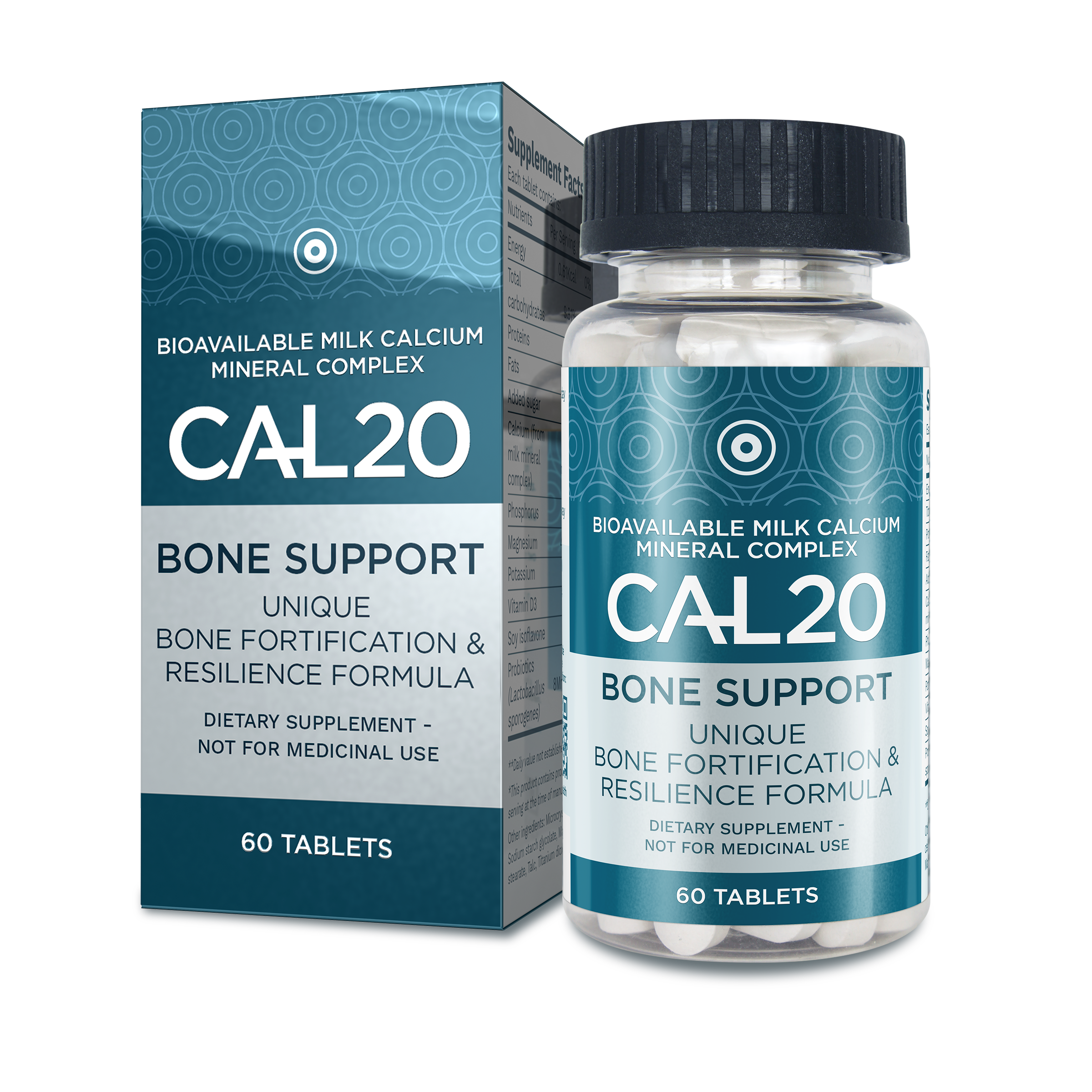To get the expert summary on Osteoporosis, its causes, and how we can fight it, we sat down with Dr Duncan Carmichael MBChB (SA), MRCGP (UK), Dip. Anti-aging (Brussels).
Dr Carmichael is a co-founder of Younger For Life, the author of Younger for Longer: How You Can Slow the Ageing Process and Stay Healthy for Life, and the health and longevity specialist at the Institute of Healthy Ageing in Cape Town.
Can you give us a summary of what osteoporosis is and the kinds of symptoms associated with it?
Osteoporosis is a modern day illness. It’s a degenerative illness. As we get older, our bodies break down and there are two main factors that are really important. One is muscle breakdown, which we can deal with quite effectively, and the other is bone breakdown, which once we get to a certain level, really debilitates us.
In patients with Osteoporosis we will often see all sorts of back pain, such as a lumbar, thoracic, and cervical spine breakdown. That’s the bottom, middle, and top part of the spine. This can be debilitating pain, which can keep us awake at night and can make all sorts of other systems within the body fall apart.
Sufferers with Osteoporosis often present with pain in the hips or any area that as been broken or fractured. Once the pain gets to a debilitating stage where we can’t get out of bed, then we tend to degenerate quite quickly. The essential part of our healthy approach to life is to keep as active as possible.
When the body is active, everything else seems to work. When the body is bed-bound, then everything else shuts down because it doesn’t need to do anything.
Deterioration at this point can happen quite quickly which is why we’ve identified bone health as a crucial factor in keeping us healthy.
“Part of our healthy approach to life is to keep as active as possible.”
When does this deterioration start and when does it reach a critical point?
Bone deterioration doesn’t just happen at the age of 70, 80 or 90. It happens gradually, from our twenties. We build up our bone mass as teenagers, and from there it slowly starts to degenerate.
We might start to notice it in our forties, but more often it will be our fifties and sixties that we really feel it. We’ll get back pains, leg pains, hip pains, and other symptoms of bone degeneration. The process is such that we have a system in our bodies where calcium is held in our blood and in our bones. Our body prioritises balancing the calcium in our blood, and doesn’t really worry about the calcium levels in our bones.
As we get older, we tend to have calcium pulled out of the bone. As a result, the bone will thin as the priority of the body is to keep the blood calcium stable. Our priority is to keep the bone calcium stable. As these degenerative processes happen, we need to put a bit of effort into putting calcium into the blood and into the bones.
So that’s where a calcium supplement would come in?
Correct, but if we do what we used to in the 1990s, which was to just put a whack of calcium salt into our systems, via calcium carbonate or calcium citrate, the calcium doesn’t necessarily go to the bone because the body is simply trying to regulate what’s in the blood. The calcium could go to the kidneys and form kidney stones. It could also calcify arteries, or tendons and cause tendinitis.
It can calcify any inflamed part of the body. If there’s an inflamed part of the brain, we can get calcification of the brain. So the calcium will just get pushed out of the blood into wherever it needs to go. The body is going to regulate the calcium in the blood, not the calcium in the bone.
So if that’s the old way, what’s the new way?
We’ve come a long way since those supplements, although plenty of them are still available on the market. We’ve learned which different factors will help to push calcium into the bone and out of the blood, not just release it into the kidneys to form kidney stones. This is where CAL20 excels, please read article interview article on CAL20 here.
“We’ve come a long way since early day supplements”
Just how serious is osteoporosis?
Osteoporosis is a huge problem. As life expectancies across the world go up we have a larger and larger portion of the population who will live long enough to experience it.
These problems have started to become a real issue for society. It starts with osteopenia, a thinning of the bones. If that thinning isn’t checked, we progress to osteoporosis, which is a significant weakening of the bones. At that stage with osteoporosis, if a 70-year-old woman were to break a large bone, a femur for example, then she would go for surgery but unfortunately, she would only have a one-third chance of a full recovery.
The statistics show that she would have only a one-third chance of recovering but being bed-bound. This would mean that she would not use her muscles and the bones would further deteriorate. From there all the other systems in her body starts to deteriorate too.
This woman also has a one-third chance of dying within a year of that injury, so it’s very serious.
It’s on par with cancers and heart attacks as something that really takes life.
Is it more preventable than cancer and heart attacks?
Fortunately, it is.
If we can be proactive about it twenty to thirty years earlier, during our forties and fifties, we do an x-ray bone density scan and if we see that the bones are starting to thin, we can make very gentle, proactive changes at this stage.
There is no need to get to the scenario at age 70 where the bone is extremely thin and it’s very difficult to reverse the disease. Osteoporosis is a real issue and a real problem.
“Osteoporosis is a real issue and a real problem”
What are some of the solutions to preventing osteoporosis?
The best strategy is to stay active and eat a low inflammatory healthy diet. The more we bounce up and down, play sports, go for a walk or a run, the stronger our bones.
Daily walking, resistance training, or body weight exercises like jumping jacks, lunges, squats, and so on will tell the brain to tell the body to keep those bones strong. As with all things, moderation is key, and for most people the best strategy will be routine light-to-medium intensity exercise, combined with supplementation from a product like CAL20.
Do these things now:
- Take Cal20.
- Do weight bearing exercise every day. (Lunges, squats, jumping jacks, press ups, etc).
- Eat a low inflammatory healthy diet, at a minimum cut out sugar.
- Get good quality sleep of 8 hours a night.
- Get Vitamin D from 10 to 20 mins of daily sun exposure on bare skin in the earlier morning or evening hours.
- Maintain a healthy body weight – being too thin (BMI under 19) is damaging to your bone health.
- Avoiding smoking and drinking alcohol
- Be aware of your osteoporosis risk factors and have a bone density scan if you are over 50 or younger if you fall into a high risk category.




